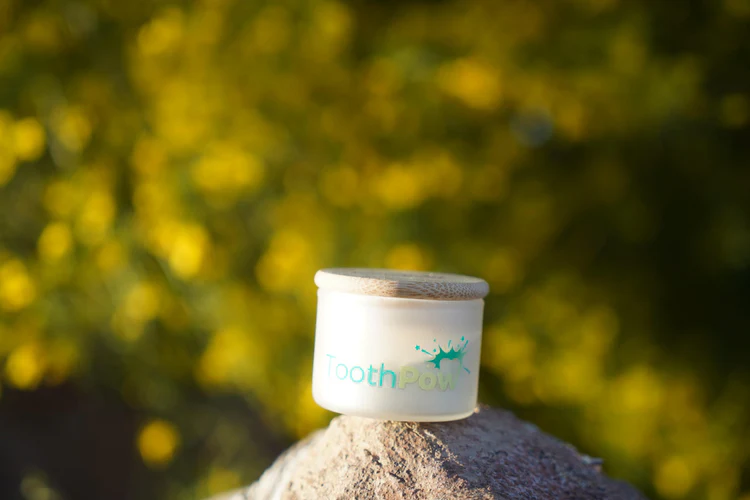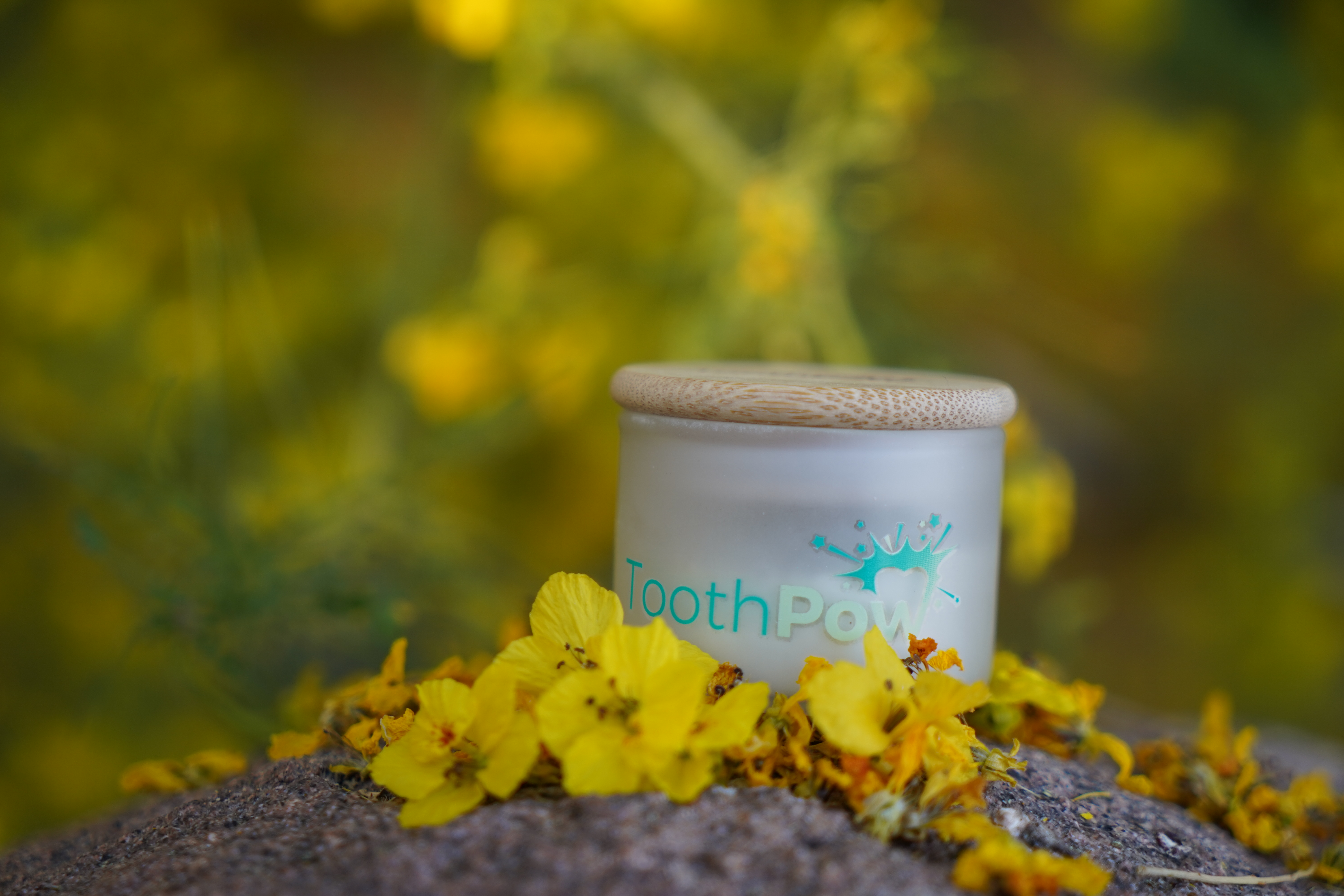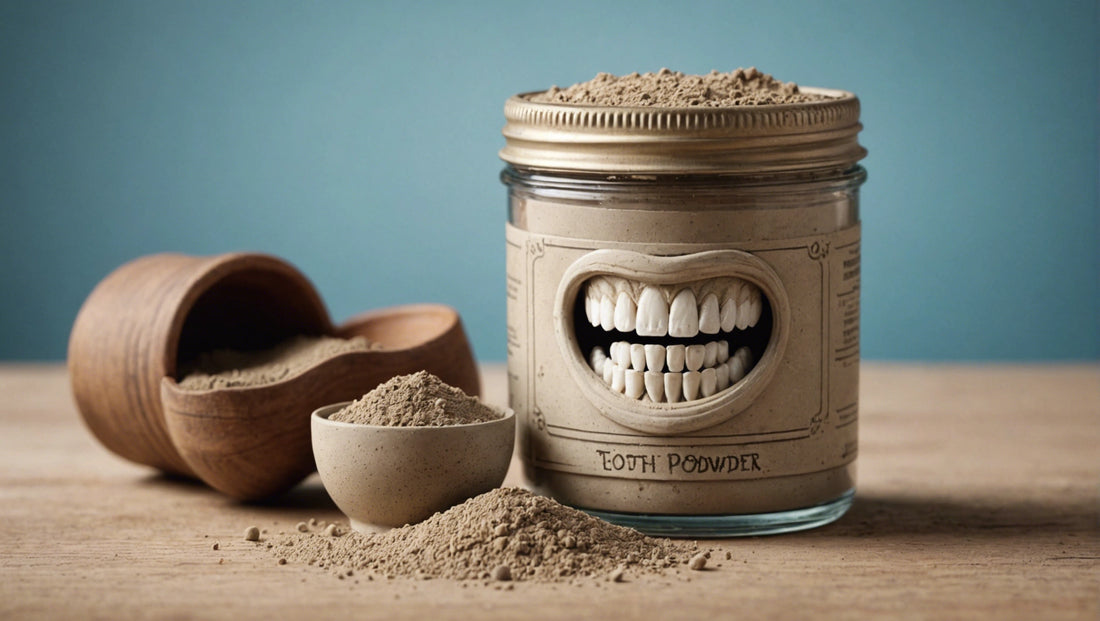Introduction
As more people become conscious of the ingredients in their personal care products, there is a growing interest in natural and alternative options for oral hygiene. Among these alternatives, clay-based toothpaste has gained popularity for its natural, non-toxic properties and its effectiveness in promoting oral health. Unlike conventional toothpaste, which often contains synthetic chemicals and additives, clay-based toothpaste uses natural clays and other gentle ingredients to clean and protect your teeth.
This article will explore what clay-based toothpaste is, its benefits, and why you might want to consider making the switch. By understanding the unique properties of clay-based toothpaste, you can make an informed decision about whether it’s the right choice for your oral care routine.
What is Clay-Based Toothpaste?
Clay-based toothpaste is a natural alternative to conventional toothpaste, formulated with various types of clay as its primary cleaning and detoxifying agents. The clays used in these toothpastes are renowned for their gentle yet effective properties, making them suitable for maintaining oral health without the use of harsh chemicals.
Definition and Basic Composition
Clay-based toothpaste typically consists of one or more types of natural clay combined with other beneficial ingredients such as natural sweeteners, essential oils, and baking soda. The most common types of clay used in these toothpastes are kaolin, bentonite, and montmorillonite. These clays have unique properties that help clean teeth, remove toxins, and promote overall oral health.
Common Types of Clay Used
Kaolin Clay
Kaolin clay is a soft, white clay known for its mild abrasiveness and soothing properties. It is effective in gently cleaning teeth without causing damage to the enamel. Kaolin clay is also rich in minerals that help strengthen teeth and support oral health.
Bentonite Clay
Bentonite clay, derived from volcanic ash, is highly absorbent and has powerful detoxifying properties. It helps remove impurities and toxins from the mouth, while its mild abrasive nature aids in cleaning the teeth effectively. Bentonite clay also has a high pH level, which can help balance the acidity in the mouth.
Montmorillonite Clay
Montmorillonite clay is another type of volcanic ash clay known for its ability to absorb toxins and impurities. It is rich in minerals that can help remineralize and strengthen teeth. Like bentonite clay, montmorillonite clay has a high pH level, making it beneficial for maintaining a healthy oral environment.
How Clay-Based Toothpaste Differs from Conventional Toothpaste
Unlike conventional toothpaste, which often contains synthetic chemicals, artificial sweeteners, and preservatives, clay-based toothpaste is made from natural ingredients. This makes it a safer and more eco-friendly option for those looking to reduce their exposure to potentially harmful substances. Additionally, clay-based toothpaste provides gentle cleaning and detoxifying benefits, making it suitable for people with sensitive teeth and gums.

Benefits of Using Clay-Based Toothpaste
Clay-based toothpaste offers a range of benefits that make it an attractive choice for those looking to maintain their oral health with natural and effective ingredients. Here are some of the key advantages:
Natural and Non-Toxic
One of the most significant benefits of clay-based toothpaste is that it is made from natural, non-toxic ingredients. Unlike conventional toothpastes, which can contain synthetic chemicals, artificial sweeteners, and preservatives, clay-based toothpaste uses natural clays and other gentle ingredients. This makes it a safer option for those who are concerned about the potential health risks associated with long-term exposure to chemical additives.
Gentle Yet Effective Cleaning
The clays used in clay-based toothpaste, such as kaolin and bentonite, provide gentle yet effective cleaning. Their mild abrasive properties help remove plaque and stains without damaging the enamel. This makes clay-based toothpaste suitable for people with sensitive teeth and gums who need a gentle alternative to harsher conventional toothpastes.
Remineralizing Properties
Clays like bentonite and montmorillonite are rich in minerals that can help remineralize and strengthen teeth. These minerals, including calcium and silica, can fill in microscopic cracks in the enamel, providing a smoother and more resilient tooth surface. This remineralization process helps protect teeth from decay and reduces sensitivity.
Antibacterial and Anti-Inflammatory Effects
Clay-based toothpaste can help reduce harmful bacteria in the mouth due to the natural antibacterial properties of certain clays. This helps prevent the buildup of plaque and tartar, which can lead to gum disease and other oral health issues. Additionally, the anti-inflammatory properties of these clays can soothe irritated gums and reduce inflammation, promoting overall gum health.
Suitable for Sensitive Teeth and Gums
Because clay-based toothpaste is free from harsh chemicals and uses gentle, natural ingredients, it is an excellent choice for individuals with sensitive teeth and gums. The soothing properties of clays like kaolin can help alleviate discomfort and prevent irritation, making brushing a more comfortable experience.
Eco-Friendly and Sustainable Packaging Options
Many clay-based toothpaste brands, including ToothPow, are committed to sustainability and use eco-friendly packaging. This often includes recyclable or biodegradable materials, such as glass jars, bamboo caps, and paper bags for refills. By choosing clay-based toothpaste, you can reduce your environmental impact and support sustainable practices.

How Clay-Based Toothpaste Works
Clay-based toothpaste works through a combination of gentle abrasiveness, remineralization, and detoxification. Here's a closer look at how it works:
Mechanism of Cleaning and Detoxifying the Mouth
The natural clays in clay-based toothpaste, such as kaolin and bentonite, provide gentle abrasiveness that helps remove plaque and surface stains without damaging the enamel. Their absorbent properties allow them to bind to toxins and impurities in the mouth, effectively detoxifying and purifying your oral environment.
Remineralization Process
Clays like bentonite and montmorillonite are rich in minerals, including calcium and silica, which are essential for the remineralization process. These minerals help fill in microscopic cracks and fissures in the enamel, strengthening and protecting your teeth from decay and sensitivity.
pH Balancing Effects
The high pH levels of clays such as bentonite and montmorillonite help neutralize acids in the mouth, maintaining a balanced pH environment. This reduces the risk of acid erosion and tooth decay, promoting overall oral health.
Comparison with Conventional Toothpaste
Unlike conventional toothpaste, which often contains synthetic chemicals, artificial sweeteners, and preservatives, clay-based toothpaste uses natural ingredients that are gentle on your teeth and gums. The absence of harsh chemicals makes clay-based toothpaste a safer and more eco-friendly option, while still providing effective cleaning and oral care benefits.
Why You Should Try Clay-Based Toothpaste
Clay-based toothpaste offers numerous benefits that make it an attractive choice for those looking to enhance their oral care routine with natural and effective products. Here’s why you should consider making the switch:
Personal Health Benefits
Non-Toxic and Safe
One of the most compelling reasons to try clay-based toothpaste is its non-toxic and safe formulation. Free from synthetic chemicals, artificial sweeteners, and preservatives, clay-based toothpaste uses natural ingredients that are gentle on your teeth and gums. This makes it an excellent choice for those concerned about the potential health risks associated with conventional toothpaste ingredients.
Effective Cleaning and Protection
Despite its gentle nature, clay-based toothpaste is highly effective at cleaning your teeth and protecting your oral health. The natural clays provide mild abrasiveness to remove plaque and surface stains without damaging enamel. Additionally, the remineralizing properties of clays like bentonite and montmorillonite help strengthen and protect your teeth from decay and sensitivity.
Suitable for Sensitive Teeth and Gums
Clay-based toothpaste is particularly beneficial for individuals with sensitive teeth and gums. The soothing properties of clays like kaolin can alleviate discomfort and prevent irritation, making brushing a more comfortable experience. Furthermore, the absence of harsh chemicals reduces the risk of exacerbating sensitivity issues.
Environmental Benefits
Eco-Friendly and Sustainable
Many clay-based toothpaste brands prioritize sustainability, using eco-friendly packaging materials such as recyclable glass jars, bamboo caps, and biodegradable paper bags for refills. By choosing clay-based toothpaste, you can reduce your environmental footprint and support sustainable practices.
Biodegradable Ingredients
The natural ingredients in clay-based toothpaste are biodegradable, which means they break down more easily in the environment compared to synthetic chemicals. This contributes to a healthier planet and reduces the overall impact of your oral care routine on the ecosystem.
Testimonials and Case Studies
Real-Life Experiences
Many people who have switched to clay-based toothpaste report noticeable improvements in their oral health. Testimonials often highlight benefits such as reduced sensitivity, better breath, and overall healthier teeth and gums. These positive experiences can provide reassurance and motivation for those considering making the switch.
Clinical Evidence
Research supports the effectiveness of clay-based toothpaste in promoting oral health. Studies have shown that natural clays can effectively remove plaque, reduce bacteria, and remineralize enamel. This scientific backing reinforces the credibility of clay-based toothpaste as a viable alternative to conventional options.
Addressing Common Concerns and Misconceptions
Taste and Texture
One common concern about clay-based toothpaste is its taste and texture. While it may differ from the minty flavor and smooth texture of conventional toothpaste, many brands use natural sweeteners like xylitol and essential oils to enhance the taste. Additionally, the slightly gritty texture of clay-based toothpaste can be an adjustment but is generally well-tolerated by users.
Effectiveness Compared to Conventional Toothpaste
Some people worry that natural toothpaste may not be as effective as conventional options. However, as discussed, clay-based toothpaste offers gentle yet effective cleaning, remineralization, and pH balancing properties. When used consistently as part of a comprehensive oral care routine, it can provide excellent results.
Choosing the Right Clay-Based Toothpaste
When selecting a clay-based toothpaste, consider factors such as the specific types of clay used, additional ingredients, and packaging. Here are some tips for choosing the right product:
Types of Clay
Different clays offer various benefits. For example, kaolin clay is known for its gentle cleaning and soothing properties, while bentonite clay is highly absorbent and detoxifying. Montmorillonite clay is rich in minerals and excellent for remineralization. Look for a toothpaste that uses the type of clay that best suits your needs.
Additional Ingredients
Many clay-based toothpastes include additional natural ingredients like xylitol, essential oils, and baking soda. These ingredients can enhance the toothpaste's effectiveness in cleaning, freshening breath, and maintaining a balanced pH.
Packaging
Consider the environmental impact of the packaging. Brands like ToothPow use recyclable glass jars, bamboo caps, and biodegradable paper bags for refills, making them an eco-friendly choice.
Recommended Brands and Products
ToothPow: Known for its balanced pH, natural ingredients, and eco-friendly packaging, ToothPow is a top choice for those seeking an effective and sus
tainable clay-based toothpaste.
Earthpaste: Made with bentonite clay, essential oils, and no artificial ingredients, Earthpaste is another excellent option for natural oral care.
Redmond: Offers a range of natural toothpastes that combine clay with other beneficial ingredients to promote oral health.
Tips for Transitioning
Switching from conventional to clay-based toothpaste can be a smooth process with a few adjustments:
Start Slowly: Begin by using clay-based toothpaste a few times a week and gradually increase usage as you become accustomed to the taste and texture.
Be Patient: It may take some time for your mouth to adjust to the new formulation. Stick with it for a few weeks to experience the full benefits.
-
Monitor Your Oral Health: Keep track of any changes in sensitivity, gum health, and overall cleanliness. Consult your dentist if you have any concerns.

DIY Clay-Based Toothpaste Recipes
Making your own clay-based toothpaste at home is a simple and cost-effective way to ensure you are using natural and safe ingredients. Here are some easy recipes you can try:
Basic Kaolin Clay Toothpaste
Ingredients:
2 tablespoons kaolin clay
1 tablespoon baking soda
1 tablespoon coconut oil (melted)
10-15 drops of peppermint essential oil
1 teaspoon xylitol (optional for sweetness)
Instructions:
In a small bowl, combine kaolin clay and baking soda.
Add melted coconut oil and mix until you achieve a smooth paste.
Stir in peppermint essential oil and xylitol, if using.
Transfer the mixture to a small glass jar with a lid.
To use, dip your toothbrush into the jar and apply a small amount of toothpaste.
Storage: Store in a cool, dry place. Use within three months.
Remineralizing Bentonite Clay Toothpaste
Ingredients:
2 tablespoons bentonite clay
1 tablespoon calcium carbonate powder
1 tablespoon coconut oil (melted)
10-15 drops of tea tree essential oil
1 teaspoon xylitol (optional for sweetness)
Filtered water (as needed)
Instructions:
In a small bowl, combine bentonite clay and calcium carbonate powder.
Add melted coconut oil and mix until a thick paste forms.
Stir in tea tree essential oil and xylitol, if using.
Add filtered water, a few drops at a time, until you reach the desired consistency.
Transfer the mixture to a small glass jar with a lid.
To use, dip your toothbrush into the jar and apply a small amount of toothpaste.
Storage: Store in a cool, dry place. Use within three months.
Activated Charcoal and Montmorillonite Clay Toothpaste
Ingredients:
2 tablespoons montmorillonite clay
1 teaspoon activated charcoal powder
1 tablespoon coconut oil (melted)
10-15 drops of spearmint essential oil
1 teaspoon xylitol (optional for sweetness)
Instructions:
In a small bowl, combine montmorillonite clay and activated charcoal powder.
Add melted coconut oil and mix until well combined.
Stir in spearmint essential oil and xylitol, if using.
Transfer the mixture to a small glass jar with a lid.
To use, dip your toothbrush into the jar and apply a small amount of toothpaste.
Storage: Store in a cool, dry place. Use within three months.
Safety Tips and Storage Recommendations
Avoid Metal Utensils: When working with bentonite clay, avoid using metal utensils or containers, as metal can reduce its effectiveness.
Clean Storage: Ensure your storage containers are clean and dry to prevent contamination.
Use Filtered Water: If the recipe calls for water, use filtered water to avoid introducing impurities.
Frequently Asked Questions
Is clay-based toothpaste safe for daily use? Yes, clay-based toothpaste is safe for daily use. Its natural ingredients are gentle on the teeth and gums while providing effective cleaning and protection.
Will clay-based toothpaste whiten my teeth? Clay-based toothpaste can help remove surface stains and whiten teeth naturally due to its mild abrasive properties. Ingredients like baking soda and activated charcoal are particularly effective for natural whitening.
Can children use clay-based toothpaste? Yes, children can use clay-based toothpaste, especially formulations without essential oils, which might be too strong for young kids. Always check with your pediatric dentist before introducing new oral care products to your child's routine.
How does clay-based toothpaste compare to conventional toothpaste? Clay-based toothpaste provides a natural alternative to conventional toothpaste, offering gentle cleaning, remineralization, and detoxification without the use of synthetic chemicals. It is especially suitable for individuals with sensitive teeth and those looking for eco-friendly options.
Can I use clay-based toothpaste if I have dental work like crowns or braces? Yes, clay-based toothpaste is generally safe for individuals with dental work such as crowns or braces. However, it’s always best to consult your dentist to ensure it meets your specific needs.
Conclusion
Clay-based toothpaste offers a natural, effective, and eco-friendly alternative to conventional toothpaste. With its gentle yet powerful cleaning properties, remineralizing benefits, and detoxifying effects, clay-based toothpaste can help you maintain optimal oral health. Whether you choose to purchase a ready-made product like ToothPow or make your own at home, incorporating clay-based toothpaste into your oral care routine can lead to healthier teeth and gums. Embrace the benefits of natural oral care and experience the difference clay-based toothpaste can make.

